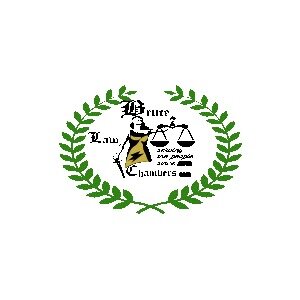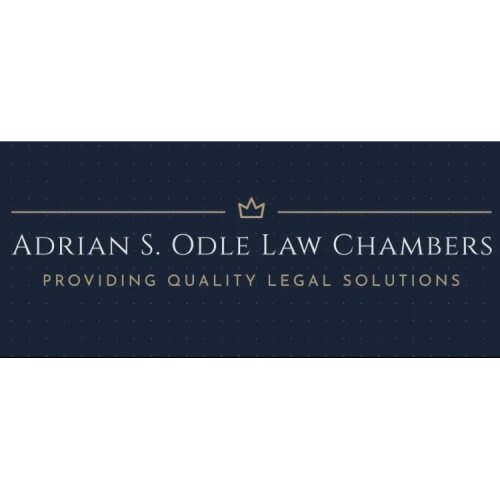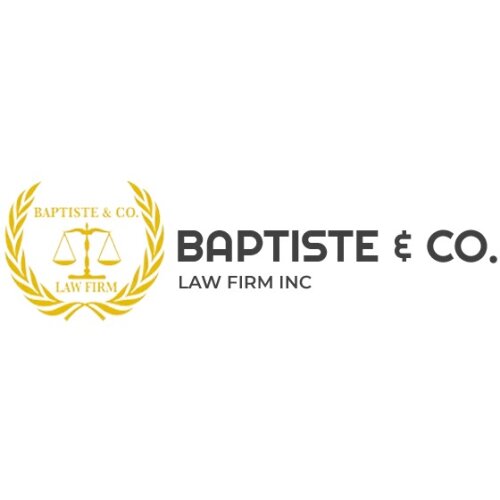Best Water Law Lawyers in Saint Vincent and the Grenadines
Share your needs with us, get contacted by law firms.
Free. Takes 2 min.
Or refine your search by selecting a city:
List of the best lawyers in Saint Vincent and the Grenadines
About Water Law in Saint Vincent and the Grenadines
Water law in Saint Vincent and the Grenadines focuses on the regulation, management, and protection of the nation’s water resources. Given the island nation’s reliance on both surface and groundwater for domestic, agricultural, and industrial use, legal frameworks ensure the fair distribution and sustainable use of water. Water law covers the rights and responsibilities of water users, allocation and licensing, quality standards, infrastructure regulation, and environmental protection. Much of the legislative environment is shaped by the need to secure public health, protect the environment, and support economic development through the sustainable use of water resources.
Why You May Need a Lawyer
There are several situations in which individuals, communities, or businesses may require legal assistance in relation to water law in Saint Vincent and the Grenadines:
- Disputes over water rights or access, especially regarding shared resources between landowners or communities
- Licensing or permit issues for the extraction or use of water for agriculture, industry, or development
- Challenges with government agencies concerning water supply, billing, or service interruptions
- Legal concerns regarding pollution or contamination of water sources affecting property or health
- Infrastructure projects such as wells, dams, or water lines that may require environmental impact assessments or compliance with local regulations
- Public advocacy for improved regulations or responses to drought, flooding, or natural disasters
- Representation in court or before regulatory bodies in matters affecting water use or conservation
Navigating water law can involve complex procedures and balancing of competing interests. Legal assistance ensures your rights are protected and that all actions are compliant with local statutes and regulations.
Local Laws Overview
Key water law legislation in Saint Vincent and the Grenadines includes the Water Services Act and related regulations, which establish the authority of the Central Water and Sewerage Authority (CWSA) and govern water usage, safety, and infrastructure. Key aspects include:
- Licensing and Permits: Extraction of surface or groundwater for non-domestic use typically requires a permit from CWSA. There are procedures for application and renewal, as well as penalties for unauthorized extraction.
- Public Supply and Private Rights: The law distinguishes between water supplied by public utilities and privately sourced water. There are regulations governing connection to the public supply, water billing, and dispute resolution.
- Water Quality Standards: Legislation and CWSA protocols set the quality standards for potable water and wastewater discharges to protect public health and the environment.
- Pollution and Environmental Protection: Regulatory frameworks prohibit certain activities that may lead to contamination of water sources, prescribe penalties, and offer recourse for affected parties.
- Land Use and Watershed Management: Related laws restrict activities around sensitive water catchment areas and encourage sustainable practices throughout the watershed to maintain water security.
The legal framework is continually evolving to address issues like climate change, increased consumption, and environmental degradation.
Frequently Asked Questions
What is the main authority regulating water use in Saint Vincent and the Grenadines?
The Central Water and Sewerage Authority (CWSA) is the primary government agency overseeing water resource management, supply, and regulation across the country.
Do I need a permit to drill a well or access groundwater on my property?
Yes, in most cases you must obtain a permit from the CWSA to legally extract groundwater. The permit process includes application, review, and compliance with relevant standards.
What should I do if my neighbor’s activities are polluting my water source?
You should first report the issue to CWSA or the Environmental Health Division. If the matter is unresolved, consider seeking legal advice to explore civil remedies or further regulatory intervention.
How are water disputes between landowners resolved?
Water disputes can be handled through CWSA mediation, but persistent conflicts may require legal action or arbitration, especially if rights or access are unclear.
Who is responsible for maintenance and repair of pipes on my property?
Property owners are typically responsible for maintenance of pipes within their boundary. CWSA maintains public supply infrastructure up to the meter or boundary, depending on specific regulations.
Can businesses extract water for commercial use?
Yes, but commercial extraction or large-scale use of water requires specific licenses and adherence to regulations, including possible environmental assessments.
Are there penalties for illegal water connections or tampering?
Yes, tampering with public water supply infrastructure or making unauthorized connections is an offense and can result in fines, prosecution, and disconnection.
How are water rates and utility charges determined?
Water rates are set by CWSA, subject to government oversight, and based on usage, infrastructure costs, and policy considerations. Special rates may apply to different user categories.
What protections exist during droughts or water shortages?
The government and CWSA may introduce emergency measures such as restrictions on non-essential use, rationing, or priority allocation for key services. Legal frameworks enable these actions during crises.
What are my options if I am overcharged or have billing disputes with the water authority?
You should first contact CWSA customer service for clarification or correction. If disputes persist, you can lodge a formal complaint and seek independent legal advice if necessary.
Additional Resources
If you need more information or assistance related to water law in Saint Vincent and the Grenadines, the following resources may be helpful:
- Central Water and Sewerage Authority (CWSA): The official body for licensing, regulation, consumer services, and complaints about water and sewerage matters.
- Ministry of Health, Wellness and the Environment: Responsible for environmental health, including water quality monitoring and pollution control.
- Environmental Health Division: Handles issues of public health related to water and sanitation.
- Local Attorneys: Many lawyers specialize or have experience in environmental and property law, which includes water legalities.
- Community Organizations: Groups advocating for sustainable water practices and public awareness in your area.
Next Steps
If you require legal assistance in water law matters, consider taking the following steps:
- Gather all relevant documents, correspondence, and information related to your water issue.
- Contact the CWSA or relevant government agency for initial guidance or to file an official complaint.
- Consult with a qualified attorney experienced in water law or environmental matters. Many offer initial consultations to discuss your situation.
- Clearly outline your specific legal concerns and desired outcomes during your consultation.
- If your issue relates to community or shared resources, consider mediation or alternative dispute resolution before pursuing litigation.
- Stay informed about your legal rights and keep records of all interactions with authorities and neighbors related to the matter.
Legal guidance can help ensure you comply with regulations, protect your interests, and resolve disputes effectively. Early legal intervention often leads to the best outcomes in water-related legal matters.
Lawzana helps you find the best lawyers and law firms in Saint Vincent and the Grenadines through a curated and pre-screened list of qualified legal professionals. Our platform offers rankings and detailed profiles of attorneys and law firms, allowing you to compare based on practice areas, including Water Law, experience, and client feedback.
Each profile includes a description of the firm's areas of practice, client reviews, team members and partners, year of establishment, spoken languages, office locations, contact information, social media presence, and any published articles or resources. Most firms on our platform speak English and are experienced in both local and international legal matters.
Get a quote from top-rated law firms in Saint Vincent and the Grenadines — quickly, securely, and without unnecessary hassle.
Disclaimer:
The information provided on this page is for general informational purposes only and does not constitute legal advice. While we strive to ensure the accuracy and relevance of the content, legal information may change over time, and interpretations of the law can vary. You should always consult with a qualified legal professional for advice specific to your situation.
We disclaim all liability for actions taken or not taken based on the content of this page. If you believe any information is incorrect or outdated, please contact us, and we will review and update it where appropriate.
Browse water law law firms by city in Saint Vincent and the Grenadines
Refine your search by selecting a city.











